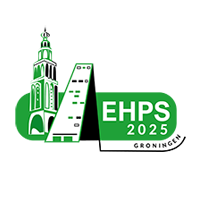About Groningen
Groningen is a vibrant city located in the northern part of the Netherlands and serves as the capital of the province of the same name. Known for its youthful energy, historic charm, and innovative spirit, Groningen is a hub of culture, education, and economic activity in the region. With its picturesque canals, rich history, and a strong emphasis on sustainability and innovation, Groningen offers a unique blend of tradition and modernity.
Things to Do in Groningen
Groningen:
The ideal EHPS destination
As a renowned university city, Groningen boasts a thriving intellectual community and cutting-edge research facilities, providing a stimulating environment for scientific exchange.
The city’s compact size and efficient public transportation system ensure easy access to the conference venue and other points of interest.
Helpful Information
Economy
Education and Research
The University of Groningen is the second-oldest university in the Netherlands that is still operating today.
Energy
The Groningen gas field is no longer in use due to the earthquakes caused by gas extraction and the resulting societal concerns for residents. The municipality has set a goal for the city to be CO₂-neutral by 2035.
Agriculture
In the province of Groningen, over 90% of rural land is used for agriculture. The province is working toward a resilient water and soil system and ecological restoration. Groningen envisions agriculture not only as a provider of food and green raw materials but also as a source of public services such as nature and landscape management, CO₂ capture, and water retention.
Government and Politics
Local Leadership
Starting in July, the new mayor of Groningen will be Roelien Kamminga, the first female mayor in Groningen. The city also has a “night mayor,” Misha Pchenitchnikov, who serves as a bridge between nightlife venues and the municipal government.
Gronings Ontzet
In 1672, Groningen successfully resisted a military attack by the Bishop of Münster’s forces—an event still celebrated every year on August 28th as Gronings Ontzet. Locals may also talk about Bommen Berend, referring to the Bishop’s bombing of Groningen. Festivities include music, a fair in the city center and a fireworks show.
Society
Groningen boasts a rich cultural heritage and a vibrant social scene, characterized by its diversity and openness. The city’s cultural offerings, lively events, and welcoming atmosphere make it an attractive destination for residents and visitors alike.
-
Language: Dutch is the official language, but English is widely spoken, especially among the younger population and in academic settings. The regional dialect, Gronings, is also spoken by some locals.
-
Cultural Institutions: Groningen is home to several renowned cultural institutions, including:
- Groninger Museum: A modern art museum known for its striking architecture and diverse collection of contemporary art, design, and historical exhibits.
- Noorderplantsoen: A picturesque park in the heart of the city, popular for leisurely strolls, picnics, and various cultural events, such as the annual Noorderzon Performing Arts Festival.
- Vera and Simplon: Famous music venues that host a wide range of concerts, from local bands to international artists, reflecting the city’s vibrant music scene.
-
Festivals and Events: Groningen hosts numerous festivals and events throughout the year, celebrating music, arts, and culture. Notable events include the Eurosonic Noorderslag, a major music festival attracting talent from across Europe, and the Groningen Dance Festival, showcasing contemporary dance performances.
-
Social Life: With its large student population, Groningen has a lively social scene, featuring a variety of cafes, bars, and clubs. The city’s compact layout and extensive cycling infrastructure make it easy to explore and enjoy the vibrant atmosphere.
History
Groningen’s history is rich and varied, shaped by its strategic location and role in regional trade and politics. The city has a legacy of resilience and innovation, reflected in its development over the centuries.
-
Early History: The origins of Groningen date back to the Roman era, with evidence of settlements in the region as early as the 3rd century. The city gained prominence in the 11th century as a trade center, benefiting from its position at the crossroads of important trade routes.
-
Hanseatic League: In the late Middle Ages, Groningen became a member of the Hanseatic League, a powerful network of trading cities across Northern Europe. This affiliation brought economic prosperity and cultural exchange, shaping the city’s growth and development.
-
Dutch Golden Age: During the Dutch Golden Age in the 17th century, Groningen thrived as a center of commerce, culture, and education. The University of Groningen, founded in 1614, played a pivotal role in establishing the city’s intellectual reputation.
-
Modern Era: Groningen experienced significant growth and modernization in the 19th and 20th centuries. Despite facing challenges during World War II, the city successfully rebuilt and emerged as a dynamic urban center. Today, Groningen is recognized for its commitment to sustainability, innovation, and cultural vibrancy.
Quality of Life
-
Healthcare: The city offers a robust healthcare system, with modern facilities and comprehensive care. The University Medical Center Groningen (UMCG) is a leading hospital and research institution, providing specialized medical services.
-
Transportation: Groningen is known for its exceptional cycling infrastructure, earning it the nickname “The Cycling City.” With extensive bike lanes and bike-friendly policies, cycling is the preferred mode of transportation for many residents. The city also has a reliable public transportation network, including buses and trains, connecting Groningen to other parts of the Netherlands.
-
Environmental Initiatives: Groningen is committed to sustainability and environmental conservation, implementing green policies and initiatives to reduce its carbon footprint. The city promotes renewable energy projects, urban green spaces, and sustainable urban planning to enhance residents’ quality of life.
Geography and Climate
Land Area ‘The city covers approximately 83 square kilometers (32 square miles), while the province spans around 2,960 square kilometers (1,140 square miles).’
Climate ‘Groningen experiences a temperate maritime climate, characterized by mild summers and cool winters. The proximity to the North Sea influences the weather, resulting in frequent rainfall and moderate temperature fluctuations throughout the year.’
